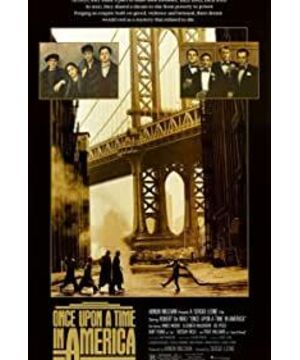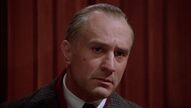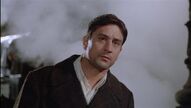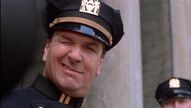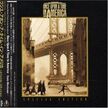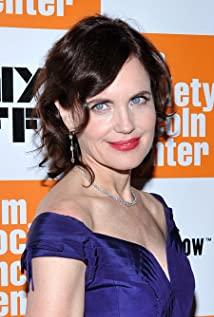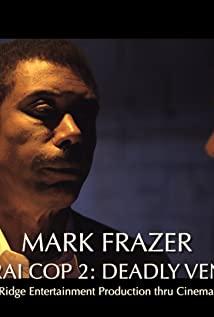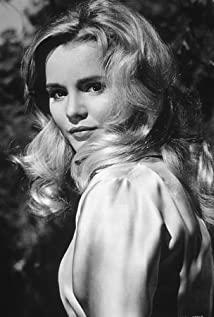The most general view is that Lao Luo's smile is a smile that comprehends the vicissitudes of life, is a smile where everything becomes empty. It was the same feeling when I saw it the first time, and I felt that the smile was full of the joys and sorrows of life. But when I recalled this giant system for the fourth time, I had a new idea.
Please note that when the old noodles saw Max rushing to the garbage truck, his eyes froze with the fading lights of the cheering crowd, and then he switched to the Opium House. Well, the whole story in chronological order stopped when the noodles' eyes were frozen. The appearance of the Opium House echoes the plot of the noodles in the Opium House in the opening scene, that is, this is an interlude. The opium house at the end is in chronological order before the opening period and after the episode of Noodles calling the police. In other words, after noodles reported to the police, thinking that they could save the other brothers (so that they would not be aggravated by robbing the Commonwealth Bank), they came to the opium house as relieved (note the left pocket of the coat when the noodles entered the opium house at the end) , It's a newspaper, this newspaper is the one beside the noodles in the opening Opium Hall), then took a few mouthfuls of opium, turned around, and smiled at the ceiling. Laughing is a relief. He finally doesn't have to be afraid of his brothers going to rob the bank and die. He thinks that a lighter sentence will make their prodigal son turn around, just like he did after he was released from prison. At this moment, he didn't know Max's strategy, just thinking about the beautiful future. He smiled, smiling like a child innocent.
From this point of view, the view that the smile of noodles represents the perception of the vicissitudes of life is not so accurate, because at this time the noodles are still in the prime of life, if you want to realize it, it should be when you are old. Why Leone left this scene at the end is because Noodles has hope for the future and hopes to stop living a life of evil.
The right to smile is a wedge, and then I will continue to talk about "Once Upon a Time in America."
In the 1960s, a gang member wrote a novel called "the hoods" in prison. After publication, Leonie wanted to change it into a script and put it on the screen. But the copyright dispute lasted for many years. It didn't start shooting until the 1980s. At this time, he is already a world-renowned director. However, the filming was not smooth at the beginning. The scenes were distributed in Rome and New York, and the crew was exhausted. Leone used the millions of funds raised initially to pay for Robert De Niro's expensive net worth (he was also suspected of being a big-name player at this time). Since then, the film has continued to add up to a huge budget of 40 million. Leone even used many of his rare collections for the decoration of the set, making "Once Upon a Time in America" a very refined sense of the times. The filming process took several years, but when it was released in the United States, it was cut in a mess, completely lacking the charm of the original version. American audiences didn't see the truth until Warner released the DVD in 2003, so this film had a very poor reputation in the United States that year. However, history has its own fairness, and time has proved that it is one of the greatest films in film history.
"Once Upon a Time in America" is actually a true portrayal of Leoné's own American dream, not just a re-creation of the original novel (the original story is very dry). He himself also said that the content that was not shown in "Once Upon a Time in the West" was 100% reflected in this masterpiece. This film can be said to be a master of Leon's film art. From macaroni westerns to the trilogy of the past, Leon's film art has reached its peak at this time. The continuous use of flashbacks, the ingenious connection of flashbacks, the meticulous scheduling of grand scenes, the styled close-ups and long shots of characters, and the melodious Morricone soundtrack are worthy of recollection over and over again. In "The Past in Leon", Li Yang said that no matter what profession the viewer is, he respects "The Past in America" without exception. This is not difficult to understand. Because the word that best summarizes Leon's film art is popularization. This is the case with Italian pasta, and even more so in the Trilogy of The Past. The popularization of Leon's style is a combination of Yangchun Baixue and the Lower Liba people, with artistic and popular qualities.
What is the American dream? Judging from the life experience of noodles, the American dream is the dream of transforming from a small bastard into a decent person. When he was a child, he pursued Deborah, who looked down upon him, watched Jack London's "Martin Eden" in the toilet, fantasizing about being a Martin Eden-style upper-class figure, thinking that Deborah would love her. When he grew up, he made money from a gang and became a decent man. He invited Deborah to eat, dance, and date, still dreaming that Deborah could love him. When I was young, Deborah said "Go, your mom is calling you""what a shame, you can never be my lover ,you are always a second-class punk." At that time Deborah had declared that the love was in each other Time does not exist, even if there is, it is ignorant of juvenile love. The behavior of growing up later confirmed these words. He can only be a gangster forever, the nature of noodle crime is calling him, even if he wants to change for good, he has to follow the drive of criminal instinct. The noodles are painful, and his tragic character created this tragic love, and it is inevitable that he will eventually become another Martin Eden. Noodles was intoxicated in his own American dream all his life and couldn't extricate himself from it. What he got was nothing but nothing but nothing. The same goes for Gatsby in Fitzgerald's works. "The Great Gatsby" sang an elegy for the American jazz age. The stagnant gaze of noodles in the melody of "god bless america" also put an end to this American dream.
View more about Once Upon a Time in America reviews


